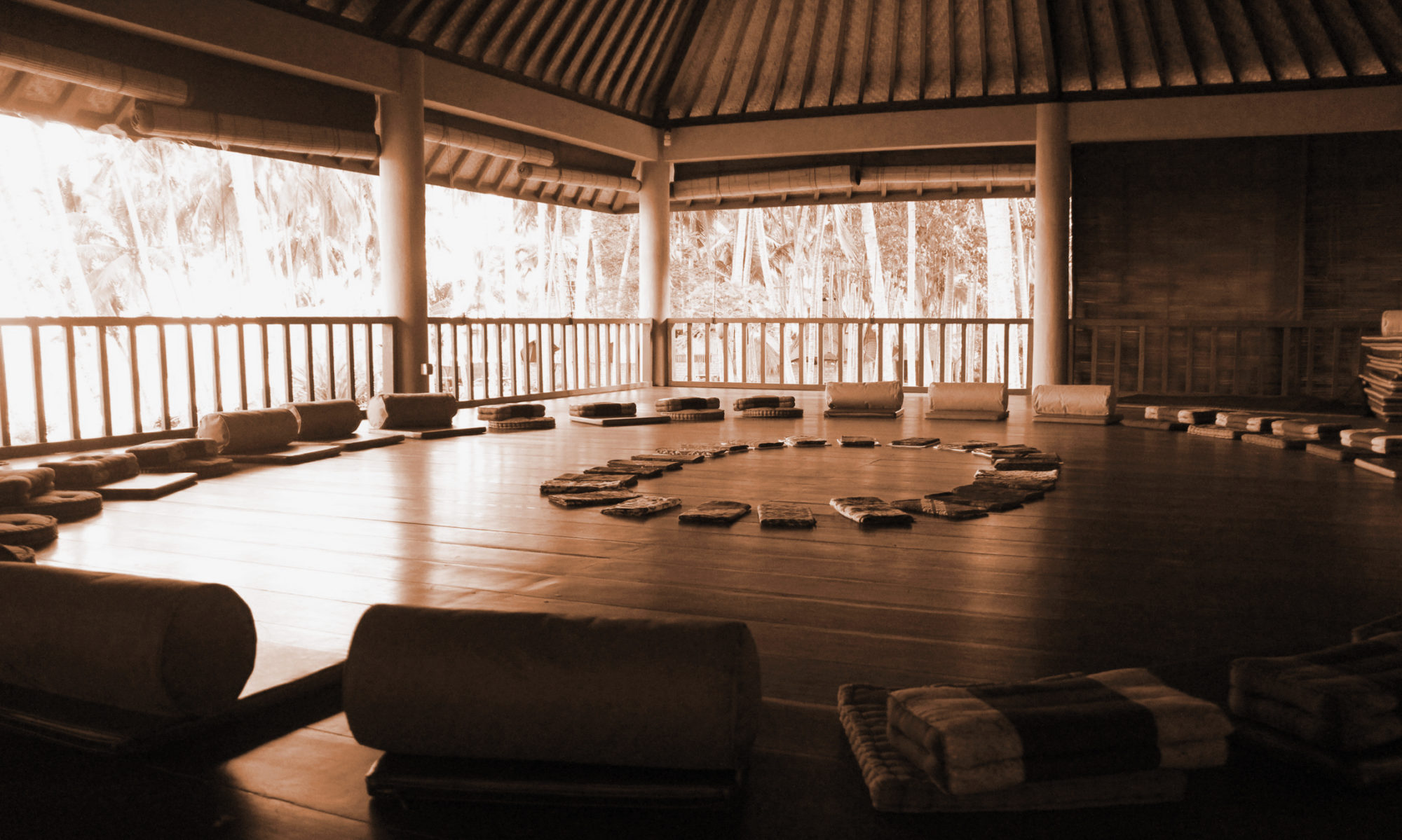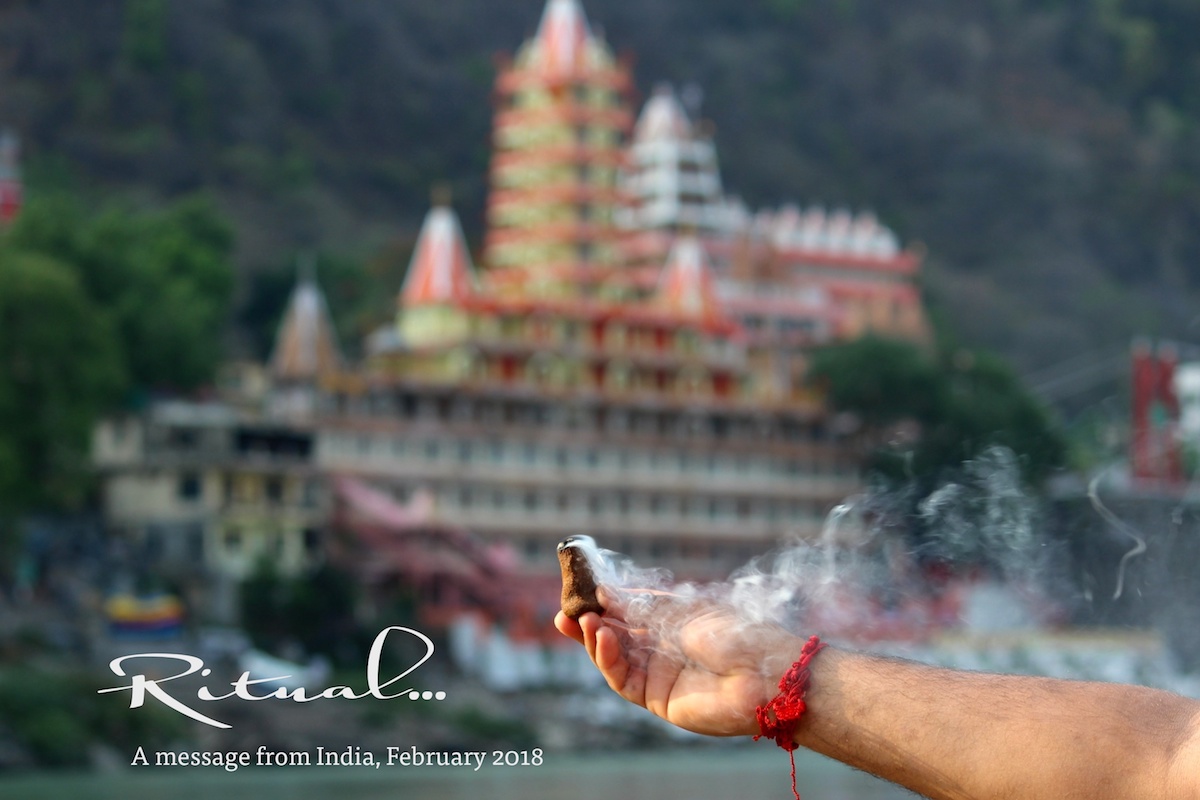Rishikesh, India, February 5, 2018
We are on the edge of the Ganges River and I am inwardly celebrating being in the perfect place at the perfect time. An Indian pundit wrapped in sacred robes has invited me to join him in a Havan, an ancient fire ceremony that honours all the elements that dictate our day. It feels all my luck has come at once with this noble invitation and I bow in agreement as I take my seat beside the two altars he has ceremoniously created on the edge of the Mother Ganga.
One altar is a pyre of kindling, ready to be set alight with several bowls of various spices surrounding the edge. The other altar is an ornate bowl filled with water, surrounded with beautiful bright flowers, sweet smelling incense on a platform with rocks, sticks, cloths, strings and coloured pastes. We sit side by side, a singing bowl nestled on the ground between us and immediately I feel a deep sense of connection and gratitude.
The ritual begins with washing of my right hand in an act of purification, followed by the wrapping of maroon and yellow threads around my wrist. The priest then begins a mantra, a section of various sounds strung together in honour of ancient deities, as well as providing subtle vibrations unifying, healing, opening or removing in a world absent of things. The priest instructs me in various ways to hold my fingers (mudra) to give an added boost to what is unfolding in the ceremony. The mantras change here and there and I quietly attempt to follow the sounds without any need of getting it right.
The process is occasionally interrupted with coloured paste tagged upon my forehead, a chime of the singing bowl or timeless gaps of silence. And the Ganga river blesses us with a fresh morning breeze as its cool purifying water brushes against the adjacent wall.
The pyre is lit with ghee and salt and we begin the fire ceremony. Again the priest instructs me on how to use the mudras to pick up the spices from the small bowls. He joyfully continues with the chanting whilst I ceremoniously and repetitiously toss the organic spice offerings into the sacred fire as we chant “Swa Ha”.
The fire ceremony continues for sometime before he asks me to stand, offering me the bowl of water that has been sitting in the middle of the altar being saturated with sound, prayers and various blessings over the past thirty minutes. He demonstrates how to hold the bowl above my head and pour it back into the powerful river Ganga. Again, we are accompanied by another centuries-old Hindu chant that has been passed down through the many colourful tribes completely devoted to this boundless, indescribable world of Spirit. The final gestures unfold as the smoke rises up, infiltrated with the mantra and prayers, as a gift to permeate into our life as we return to our daily tasks. As the impregnated smoke rises up into the sky, we gather a double-handed stroke to our eyes, ears, throat, chest and arms, symbolising a purifying action with what we see, hear, speak, feel and do.
As I walk away, I bow in in deep respect of what has been offered. There is a notable change. To describe it in words would undermine the richness of the experience — to simply recognise a deeper form of connection, a notable bowing of the head to the heart and a significantly lighter step upon sacred ground.
In a world that is infatuated with doing, it appears daily rituals may be the medicine for the modern world. Simply a time in the day to say thankyou. A time to honour traditions that point to the mystery we can’t see but affects our every glance. A time to recognise all that is pure and vibrantly alive within and around.
With love,
Gwyn



